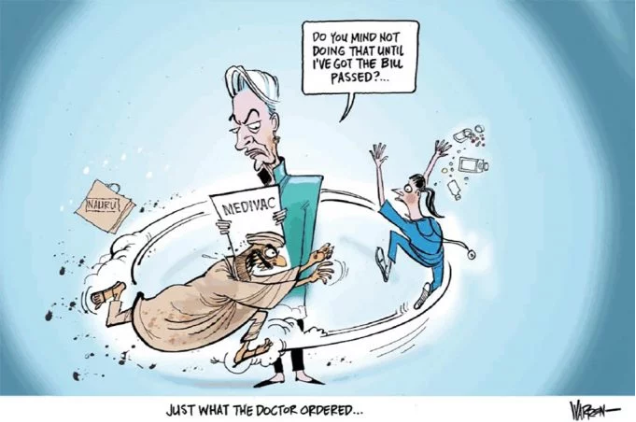Daily Telegraph cartoon implying asylum seekers are ‘dirty’ ‘predators’ cleared by Press Council
A Warren Brown cartoon that received complaints for implying asylum seekers are “savages”, a “threat to white women”, “dirty”, “predators”, and “dangerous” has been cleared by the Press Council.
The cartoon, published a year ago in The Daily Telegraph, should be viewed in the context of historical, racist caricatures, complainants contested. But while the Press Council agreed it conveyed offensive stereotypical inferences, it said this was not in breach of its standards because doing so was “justified in the public interest”.

Complainants said the cartoon was racist and offensive


Of course it appeared in the Daily Tele!
Could have just as easily appeared in the Herald Sun as well.
While its totally expected of them, I’m just amazed at how News Corp keep getting away with this tone deaf racism. Is that boycott in effect yet?
Doesn’t pass the pub test. But maybe the Press Council don’t go to the pub. And as a result, the Press Council is essentially endorsing and continuing the “history of caricatures based on race and historical racist depictions”, somehow in the public interest. Bunch of crackpots.
If it was a Jewish person being portrayed in this manner, the outcome would have been different. Some races and religions are more equal than others.